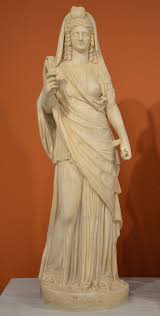|
1
2 |
| Name ▲▼ | Origin ▲▼ | Description ▲▼ |
|---|---|---|
| King name "Aidoneus" | Greek | A mythical king of the Molossians, the husband of Persephone, and father of Core. Greek |
| Goddess name "Alpanu aka Alpan" | Etruscan | Goddess of love and one of the Lasas, and a ruler of the underworld. Possibly equated with the Greek goddess Persephone. In art, she was usually depicted as a nude or semi-nude winged maiden. Etruscan |
| Goddess name "Auxesia" | Greek | The goddess who grants growth and prosperity to the fields, a surname of Persephone. Greek |
"Azesi" | Greek | A surname of Demeter and Persephone, which is derived either from "to dry fruits", or from "to seek". Greek |
| Goddess name "Bendis" | Greece | A Thracian divinity in whom the moon was worshipped. Hesychius says "that the poet Cratinus called this goddess Two Spears, either because she had to discharge two duties, one towards heaven and the other towards the earth, or because she bore two lances, or lastly, because she had two lights, the one her own and the other derived from the Sun. In Greece she was sometimes identified with Persephone, but more commonly with Artemis. |
"Brimo" | Greek | The angry or the terrifying, occurs as a surname of several divinities, such as Hecate or Persephone (Argonautica), Demeter, and Cybele. Greek |
| God name "Daffodil" | Greek / Roman | Or "Lent Lily," was once white; but Persephone, daughter of Demeter, delighted to wander about the flowery meadows of Sicily. One spring, throwing herself on the gråśś, she fell asleep. The god of the Infernal regions, Pluto, fell in love with the beautiful maid, and carried her off for his bride. His touch turned the white flowers to a golden yellow, and some of them fell in Acheron, where they grew luxuriantly; and ever since the flower has been planted on graves. Greek / Roman |
| Goddess name "Despina" | Greek | Or Despoena, the daughter of Poseidon and Demeter after they mated disguised as horses. Despoena, the ruling goddess or the mistress, occurs as a surname of several divinities, such as Aphrodite, Demeter and Persephone. Greek |
| Goddess name "Despoena" | Greek | 1. A goddess of fruit. A daughter of Demeter and Poseidon. Known as Pomona to the Romans 2. The ruling goddess or the mistress, occurs as a surname of several divinities, such as Aphrodite, Demeter and Persephone. Greek |
| Goddess name "Epaine" | Greek | The fearful, a surname of Persephone. Plutarch suggests, that it might also be understood in a euphemistic sense as the praised goddess. Greek |
| God name "Eurydice" | Greek | The most famous was a woman-or a nymph-who was the wife of Orpheus. While fleeing from Aristaeus, she was bitten by a serpent and died. Distraught, Orpheus played such sad songs and sang so mournfully that all the nymphs and gods wept and gave him advice. Orpheus accomplished something no other person ever has: he traveled to the underworld and by his music softened the heart of Hades and Persephone, who allowed Eurydice to return with him to the world of the living. Greek |
"Hecate" | Greek | A mysterious divinity, who, according to the most common tradition, was a daughter of Persaeus or Perses and Asteria, whence she is called Perseis. Others describe her as a daughter of Zeus and Demeter, and state that she was sent out by her father in search of Persephone; others again make her a daughter of Zeus either by Pheraea or by Hera; and others, lastly, say that she was a daughter of Leto or Tartarus. Greek |
| Goddess name "Kore (tbe girl)" | Greek | Youthful goddess of the corn. The more generic name for the goddess PERSEPHONE. Identified as the daughter of DEMETER. She is the spirit of the corn as distinct from her mother who is the giver of the corn. Depicted on coinage as a woman's head adorned with ears of corn. She is integral to the Eleusinian Mysteries in which she is abducted to Hades, resulting in the distress of her mother and the blighting of nature. At Samaria-Sebaste in Syrio-Palestine, Kore was the only deity worshiped, apart from the emperor.... |
"Kore or Core" | Hopi | The maiden, a name by which Persephone is often called. Greek |
| Goddess name "Kostroma" | Russian | Benevolent and malevolent fertility goddess; like the Greeks' Persephone, she is a dying and reborn daughter. Russian |
| Nymph name "Leucippe" | Greek | 1. One of the nymphs who was with Persephone at the time she was carried off. 2. The wife of Ilus, and mother of Laomedon. 3. A daughter of Thestor. 4. The wife of Thestius. 5. A daughter of Minyas of Orchomenos. Greek |
"Libitina" | Italian | An ancient Italian divinity, who was identified by the later Romans sometimes with Persephone on account of her connection with the dead and their burial, and sometimes with Aphrodite. |
| Goddess name "Persephone" | Greek | Goddess of death and spring, queen of the underworld. Greek |
|
1
2 |
||
Sources:
Michael Jordan, Encyclopedia of gods 2002
Michael Senior, Who´s who in mythology 1985
Elizabeth Hallan, Mytologian Jumalat (Gods and Goddesses, 96) 1997
Nigel Pennick, the Pagan book of days 1992
Arthur Cotterell, Mytologia: Jumalia, Sankareita, Myyttejä 2005
Robin Hard, the Routledge handbook of Greek mythology 2004

